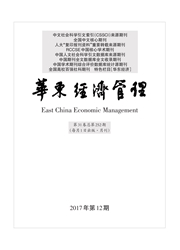

 中文摘要:
中文摘要:
文章基于非线性平滑转换面板数据模型,分析我国城市居民和农村居民消费的影响因素以及变化趋势,实证结果如下:我国城市居民和农村民居均具有稳定的消费习惯,且稳定性随着收入水平递增;人均收入与居民消费率负相关:财政支出对居民消费率的挤入效应随着收入水平增加逐渐变小;城市老年抚养比和少年抚养比与居民消费率均为正相关。农村少年抚养比与居民消费率负相关;利率对居民消费率的影响随收入水平增加呈倒U型形状的变化。
 英文摘要:
英文摘要:
The paper analyzes the factors and trend which affect Chinese urban and rural residents' consumption based on the nonlinear smooth transition panel data model. The empirical results show that: both urban and rural residents have stable consumption habit which is gradually strengthened with the increase of income. Per capita income is negative correlation with household consumption ratio. The 'erowding-in effect' of the government expenditure to residents' consumption ratio decreases with the increase of income level. The old-age support ratio has a positive eftect on household consumption, so does the young-age support ratio in the cities, while the young-age support ratio has a negative el'feet in the rural areas. The effect of interest rate on househoht consumption show the inverted U shape.
 同期刊论文项目
同期刊论文项目
 同项目期刊论文
同项目期刊论文
 期刊信息
期刊信息
